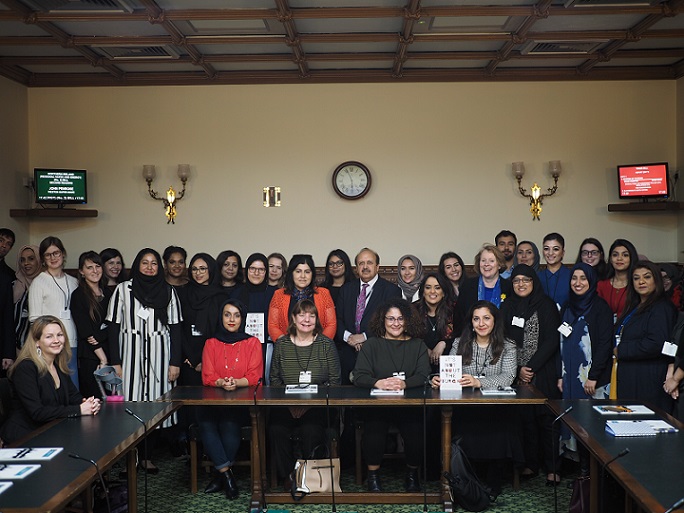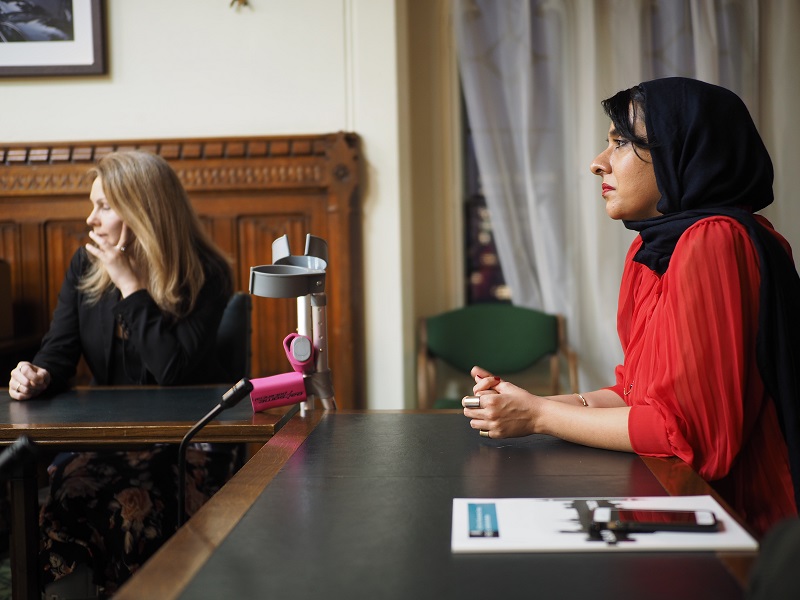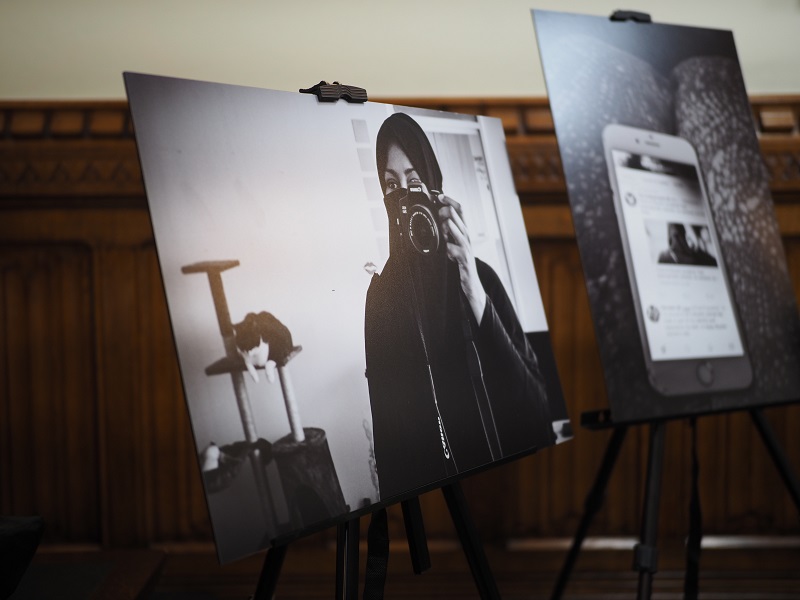
Diversity
Speaking of the process behind the publication Mariam said, “You’re creating this platform. You want to show the diversity of identity. You don’t have to approve of every single view or value or how someone practices their faith.”
“As long as they identify themselves as a Muslim…It was really interesting to go through the process, ‘So this person thinks this, how can I digest this!’ It was a really good learning curve for me as well. It was a good test of my faith, a good test of my values, how I see myself as a woman, and where I find my place in the world.”
One of the contributors, Aina Khan MBE who wrote a chapter on Registering Muslim Marriages said, “The whole point of this book is not about the Burqa. I was concerned that we would become victims again, and it happened on social media: they’re always asking why aren’t you talking about the burqa.

“People are fixated by it and I was worried that if I write a chapter in it, it will about women as victims, poor us, will you rescue us, we need to be saved, and I don’t want that narrative. We are strong enough as a community to own the issues.
“So I’ve made sure that the campaign itself is interfaith. For example African Churches, their women are not registering their marriages in increasing numbers. Hassidic Jews, again are not registering. It’s actually about power and control, not Muslim women, but Muslim women are affected proportionally higher because of the numbers, and they are visibly Muslims, so they get a lot of (verbal) attacks.”

Nafisa Bakkar, CEO of Amaliah.com, Halal Gems, another of the contributors said, “I think the biggest fear is that this is very much a snapshot. And I’m hoping that I have a long life and that my thoughts will always change. And to have to commit to – especially because it is print and not online, you can’t just keep editing it. I think that was the most difficult thing, in five years will I still agree with the things that I have written down. And the fact that I think there is very little mercy in that.
“The other difficult thing is that Muslim women are often asked to react in mainstream spaces to narratives that are not led by us. So we are asked, can you comment on this latest headline or this latest study. And for me, writing this essay was first and foremost to our community and to have really honest conversations which I think we are often quite scared to have because it also means having to be honest about issues that are going on and being aware that those issues can also be used against us.”